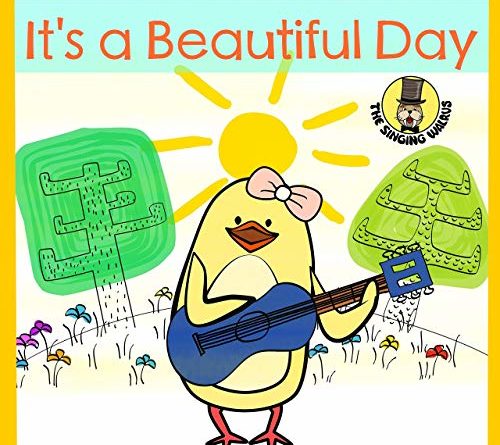Songs that bring out all the feels
Songs that bring out all the feels.
Source: https://www.youtube.com/watch?v=Iw8FddccIkQ
The Singing Walrus
Follow us: https://www.facebook.com/OposicionesInglesRP/
More about Road to your Post: oposicionesingles.com
Text extracted from: Temario de oposiciones Inglés-Primaria.
Generating initial motivation and maintaining a positive attitude. At early stages of FLL, children are especially receptive to the fun component and the surprise element. In this sense, introducing lessons through familiar and contextualised learning scenarios is indispensable to engage them and attract their interest. Therefore, as we shall subsequently illustrate, the use of games, stories, songs and playful interactions is at the heart of motivating teaching practice in FLT. Notwithstanding, there is an intrinsic value in the teaching of FLs which can be associated to the learners´ interest.
Dörnyei (2001) suggests a simple framework to arouse students´ expectancy of success:
Provide sufficient preparation. The perceived likelihood of success does not depend only on how difficult the task is, but also on how well the learners are prepared for the task. Pre-task activities have become standard features in modern language teaching methodologies, and these tasks increase success potential.
Offer assistance. If the students know that they can count on the teacher´s ongoing guidance and help while they are engaged in a learning activity, this knowledge will naturally increase their expectation of success.
Peer´s help. One reason why cooperative, small group tasks are particularly motivating is that students know that they also have their peers working towards the same goals.
Make the success criteria as clear as possible. Students can only expect to be successful with confidence if it is quite clear what `success’ means in the particular context. The criteria for success need to be obvious to them from the beginning of learning if they are to know which elements of their performance and production are essential.
Provide motivational feedback to increase the learners´ satisfaction. The use of caring and supportive language, together with a friendly attitude on the part of the teacher, are crucial factors that influence the learners´ motivation. These strategies include the consideration of error as a natural an indispensable factor that must be accepted as intrinsic to the learners´ construct of the foreign language. As experienced FL teachers would acknowledge, there is no point in trying to engage students in a real communicative situation, if we stop the exchange of meaning at every error they commit.
Nevertheless, maintaining interest requires an adequate level of challenge. In this regard, we must consider a balance of linguistic and cognitive challenge, building up activities not too easy, nor too difficult. At this point, the concept of Zone of Proximal Development (ZPD), based on Vygotsky, is especially helpful to design activities which bridge the gap between what children are able to carry…

…
More information:
Follow us: https://www.facebook.com/OposicionesInglesRP/
More about Road to your Post: oposicionesingles.com
Text extracted from: Método de resolución de casos prácticos.
“Songs are invaluable tools to get learners collaborate and enjoy whilst they learn essential sociocultural aspects of English speaking countries, as we shall see along this paper through some illustrative examples…”
Moreover, candidates may find useful to count on some hints about collaborative learning, which is the real challenge of active learner-centred methodologies.
“What the child learns to do in cooperation with others, he will learn to do alone.” Lev Vygotsky, Mind in Society. The development of Higher Psychological process.
According to Johnson (2014), in formal cooperative learning, pupils work together for one or more class periods to complete a joint task or assignment.
Managing the organisation of the class requires taking decisions on the way students shall be grouped; in this sense, we foster and promote group dynamics which permit productive work. Some of these strategies for small group project work may be:
- Provide opportunities to develop a rapport and group cohesion through icebreakers, team-building, and reflection exercises.
•Create a group work plan to promote a sense of achievement.
•Students can create a contract for each member to sign and show commitment towards the group.
•Assign roles to members of each group and change the roles periodically. For example, one student can be the coordinator, whilst others can be note-taker, and planner of next steps, amongst others.




